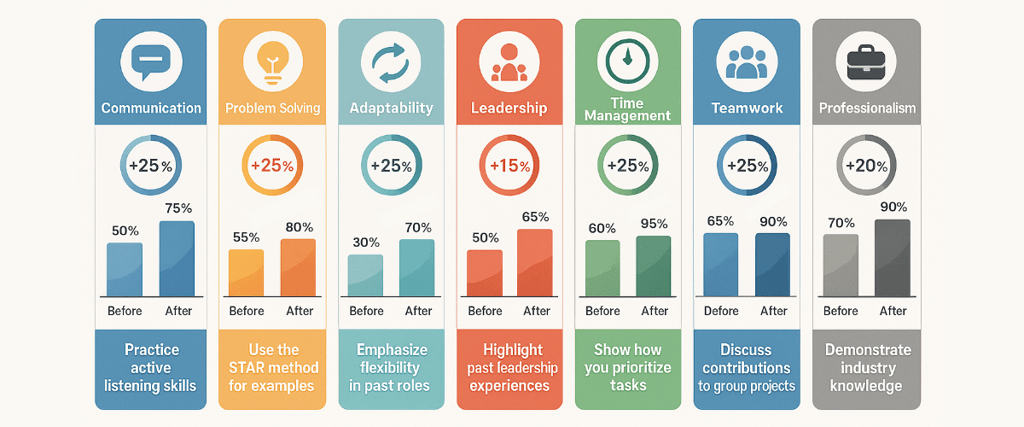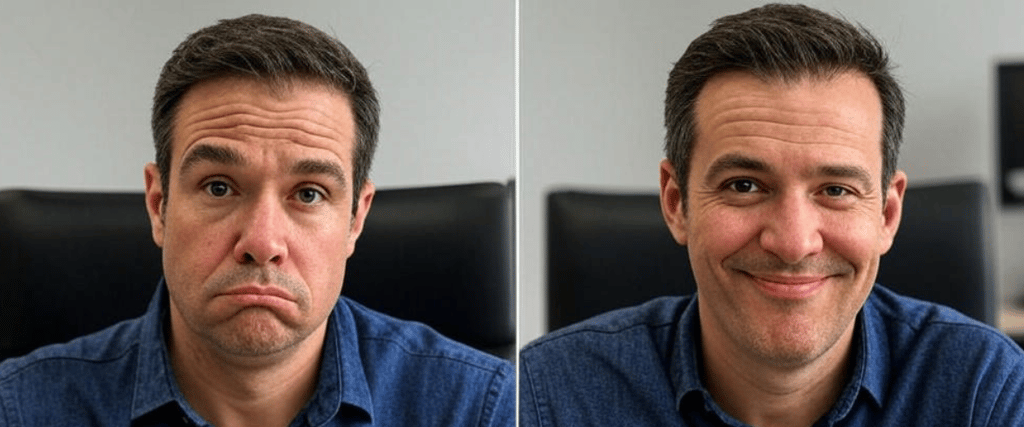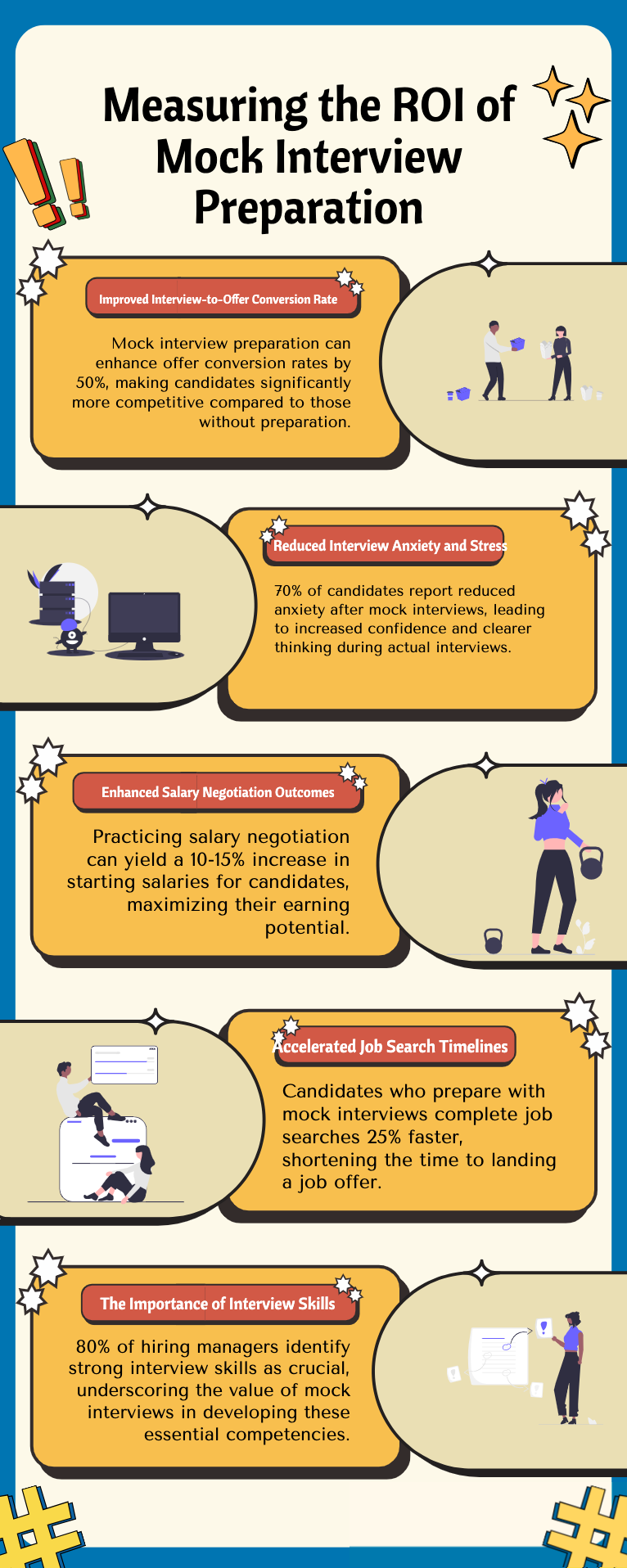Why 92% of Successful Candidates Use Mock Interviews Before the Real One
Discover why 92% of successful job candidates rely on mock interviews to secure their dream positions. This comprehensive guide explores how interview preparation significantly improves performance, with research showing that 90% of hiring managers cite preparation as a decisive factor. Learn evidence-based strategies to refine your communication skills, develop stress resilience, and craft a compelling personal narrative. From mastering common questions to handling unexpected challenges, find out how mock interviews provide the critical edge in today's competitive job market. Practical tips for choosing the right mock interview format and maximizing your ROI through strategic practice.
J Matthew
5/5/20255 min read
Why 92% of Successful Candidates Use Mock Interviews Before the Real One
In today's fiercely competitive job market, preparation can make the critical difference between receiving an offer and being passed over. A stunning 92% of candidates believe mock interviews are an essential component of interview preparation. This statistic isn't surprising when you consider that 90% of hiring managers cite interview preparation as a key factor in a candidate's success. With 84% of employers specifically valuing candidates with practical soft skills, mock interviews have emerged as the gold standard for pre-interview preparation.


The Hard Data Behind Mock Interview Effectiveness
The numbers don't lie: mock interviews significantly improve candidates' performance in real interviews. Research consistently shows that practicing interview scenarios helps candidates develop the confidence, communication skills, and quick thinking necessary to impress potential employers.
Successful candidates understand the value of preparation, with 84% scheduling their interviews within 24 hours of receiving an invitation. This proactive approach extends to their preparation as well. Top performers don't leave their interview success to chance—they systematically practice through structured mock interviews.
Measurable Improvement in Critical Interview Skills
Mock interviews provide measurable improvement in the skillsets most valued by employers. Scientific research has validated this approach, with studies demonstrating the psychometric reliability of mock interview assessment tools. The seven-item version of the Mock Interview Rating Scale (MIRS) has been found to have acceptable psychometric properties, supporting its use in assessing job interview performance.
Competencies hiring managers look for:
Verbal communication clarity
Question response structure
Professional demeanor
Technical knowledge articulation
Problem-solving approach
Cultural fit expression
Each practice session helps candidates refine these essential skills, turning weaknesses into strengths before the actual interview.


Why the Most Prepared Candidates Rely on Mock Interviews
Understanding why 92% of candidates consider mock interviews crucial requires examining what these practice sessions actually deliver. Mock interviews aren't just about rehearsing answers—they're about developing a comprehensive set of skills that make candidates appear more polished, confident, and qualified.
Real-Time Feedback That Transforms Performance
One of the most valuable aspects of mock interviews is the immediate feedback candidates receive. Unlike self-practice, professional mock interviews provide objective assessment from experts who understand what hiring managers are looking for.
This feedback focuses on:
• Answer content quality and relevance
• Delivery style and impact
• Non-verbal communication signals
• Areas of strength to emphasize
• Weaknesses to address before the real interview
This targeted feedback allows candidates to make rapid improvements that would be impossible to achieve through self-assessment alone.
Stress Inoculation for Peak Performance
Mock interviews help candidates build psychological resilience by exposing them to interview pressure in a controlled environment. This process, known as stress inoculation, helps reduce anxiety during actual interviews. By experiencing and managing interview stress beforehand, candidates can maintain their composure and think clearly when it matters most.


Customized Practice for Specific Industries and Roles
Generic interview preparation is helpful, but specialized mock interviews tailored to specific industries and roles provide a significant competitive advantage. Industry-specific mock interviews allow candidates to:
Practice answering technical questions relevant to their field
Demonstrate specialized knowledge that sets them apart
Use industry terminology appropriately
Address role-specific challenges and scenarios
Prepare for industry-standard assessment methods
This customized approach ensures candidates are prepared for the exact type of interview they'll face, rather than just general interview questions.
How Mock Interviews Transform Interview Performance
The transformation from unprepared to interview-ready candidate happens through several key mechanisms during mock interview practice.
Refining Your Personal Narrative
Mock interviews help candidates develop a coherent, compelling personal narrative that connects their experience to the position they're seeking. Through practice and feedback, candidates learn to:
• Identify their most relevant accomplishments
• Structure stories using proven frameworks like STAR or CAR
• Quantify achievements with specific metrics
• Connect past experience to future contributions
• Express their unique value proposition clearly
This narrative development ensures candidates present themselves not just as qualified, but as the ideal solution to the employer's needs.
Mastering Both Common and Unexpected Questions
Comprehensive mock interview preparation covers both standard interview questions and unexpected challenges. The best practice sessions help candidates:
• Develop strong answers to common behavioral questions
• Prepare for technical assessment questions specific to their field
• Practice responding to unexpected or unusual questions
• Handle multi-part questions effectively
• Address potential concerns about their background
This breadth of preparation ensures candidates aren't caught off-guard during the actual interview, maintaining their confidence regardless of what questions arise.
Developing Strategic Question Technique
Beyond preparing answers, mock interviews teach candidates effective question-handling strategies that make their responses more impactful:
Active listening techniques to fully understand questions
Clarification methods when questions are unclear
Thoughtful pausing to organize response
Answer frameworks for different question types
Effective methods for redirecting problematic questions
These strategic approaches allow candidates to maintain control of the interview and showcase their strengths even when facing challenging questions. The measurable impact of this comprehensive interview preparation approach is supported by compelling data that demonstrates exactly how mock interviews transform performance outcomes.


How to Maximize the Benefits of Mock Interviews
To join the 92% of candidates who value mock interviews, follow these evidence-based best practices for interview preparation.
Progressive Practice for Optimal Improvement
Rather than conducting all mock interviews at once, top performers use a progressive practice schedule:
Initial diagnostic mock interview to identify baseline performance
Focused practice on key improvement areas
Follow-up mock interviews to assess progress
Specialized mock interviews for specific types of questions
Final mock interviews simulating the actual interview environment
This progressive approach allows for targeted improvement rather than generic practice, maximizing the benefit of each session.


Joining the 92% of Prepared Candidates
The data is clear: the vast majority of successful job candidates consider mock interviews essential to their preparation strategy. With 90% of hiring managers citing preparation as a key success factor, mock interviews provide the structured practice needed to stand out in competitive hiring processes.
Whether you're entering the job market for the first time, changing careers, or moving up the corporate ladder, professional mock interview preparation provides a significant competitive advantage. By simulating the interview experience, receiving expert feedback, and systematically addressing weaknesses, you position yourself among the best-prepared candidates in your field.
Investing in mock interview preparation isn't just about getting any job—it's about securing the right position at the right compensation level. In today's competitive market, this preparation can make the difference between settling for an adequate position and landing your dream job.
Sources
1. finalroundai.com - Unlock Success with Mock Interview Benefits
2. preplaced.in - The Ultimate Guide to Mock Interviews: In-depth Statistics ...
3. zirtual.com - 80+ Job Interview Statistics & Trends (2024)
4. ncbi.nlm.nih.gov - Psychometric properties of the mock interview rating scale ...
5. passivesecrets.com - 95 Interesting Job Interview Statistics & Huge Trends (2025)
6. novoresume.com - 75+ Job Interview Statistics That Will Help You Get Hired in ...
Mock Interview Specialist
"Tailored mock interviews for career growth success."
Want to receive helpful interview tips?
DBA Mock Interview Specialist - 2025 - All Rights Reserved



